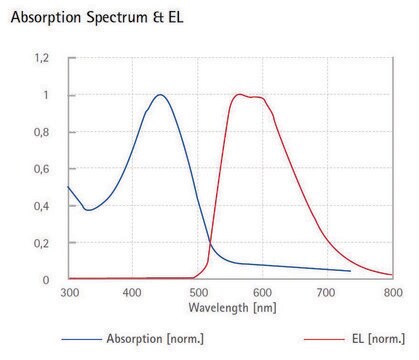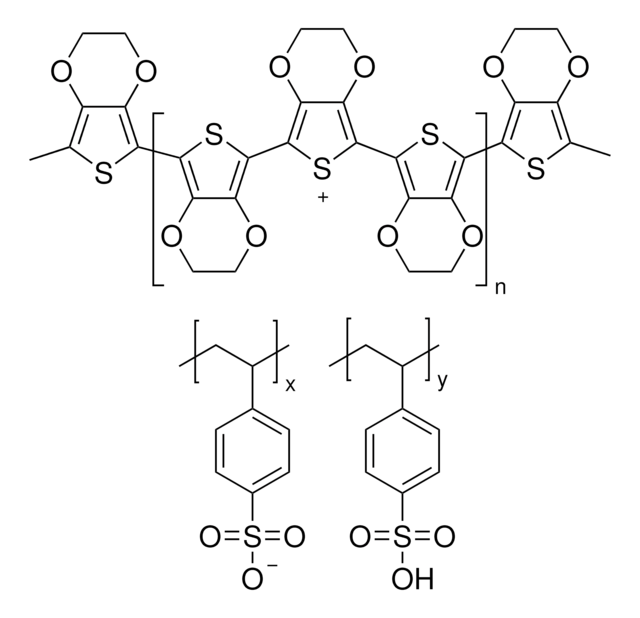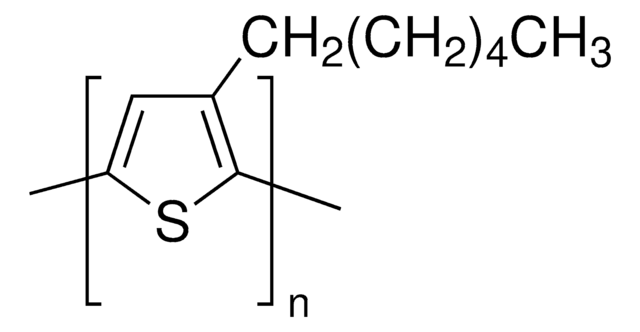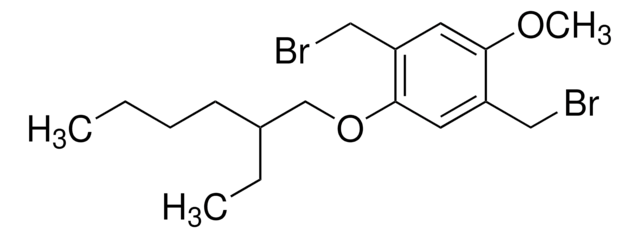541443
Poly[2-methoxy-5-(2-ethylhexyloxy)-1,4-phenylenevinylene]
average Mn 40,000-70,000
Synonym(s):
MEH-PPV
About This Item
Recommended Products
description
Band gap: 2.3 eV
Quality Level
mol wt
average Mn 40,000-70,000
fluorescence
λex 493 nm; λem 554 nm in toluene
Orbital energy
HOMO -5.3 eV
LUMO -3 eV
OLED Device Performance
ITO/PEDOT:PSS/MEH-PPV/Al
ITO/PEDOT:PSS/MEH-PPV/PBO/Al
ITO/PEDOT:PSS/MEH-PPV/PBZT/Al
OPV Device Performance
ITO/MEH-PPV/BBL/Al
ITO/MEH-PPV:PC61BM(1:4)/Ca
Mw/Mn
~6
storage temp.
2-8°C
SMILES string
O(CC(CCCC)CC)c1cc(c(cc1)OC)C=C
InChI
1S/C17H26O2/c1-5-8-9-14(6-2)13-19-16-10-11-17(18-4)15(7-3)12-16/h7,10-12,14H,3,5-6,8-9,13H2,1-2,4H3
InChI key
CTUSWJPWMNVXEE-UHFFFAOYSA-N
Related Categories
General description
Application
Filter before application.
Storage Class Code
11 - Combustible Solids
WGK
WGK 3
Flash Point(F)
Not applicable
Flash Point(C)
Not applicable
Personal Protective Equipment
Choose from one of the most recent versions:
Already Own This Product?
Find documentation for the products that you have recently purchased in the Document Library.
Articles
PCBM-based n-type semiconductors - Find p- and n-type organic semiconductors available from Sigma-Aldrich with PCBM library & properties.
The development of high-performance conjugated organic molecules and polymers has received widespread attention in industrial and academic research.
Mesoporous materials are formed by a self-assembly process from combined solutions of sol-gel precursors (e.g., metal alkoxides) and structure-directing amphiphiles, usually block-copolymers or surfactants.
Organic Semiconductor Laser Materials
Global Trade Item Number
| SKU | GTIN |
|---|---|
| 541443-1G | 4061832567068 |
| 541443-250MG | 4061832567075 |
Our team of scientists has experience in all areas of research including Life Science, Material Science, Chemical Synthesis, Chromatography, Analytical and many others.
Contact Technical Service![Poly[2-methoxy-5-(2-ethylhexyloxy)-1,4-phenylenevinylene] average Mn 70,000-100,000](/deepweb/assets/sigmaaldrich/product/structures/344/488/b8f8179d-3970-4deb-a754-adda88cdb36f/640/b8f8179d-3970-4deb-a754-adda88cdb36f.png)
![Poly[(p-phenylenevinylene)-alt-(2-methoxy-5-(2-ethylhexyloxy)-p-phenylenevinylene)]](/deepweb/assets/sigmaaldrich/product/structures/147/963/61b421da-530b-4acf-8851-ecb9492e90ba/640/61b421da-530b-4acf-8851-ecb9492e90ba.png)
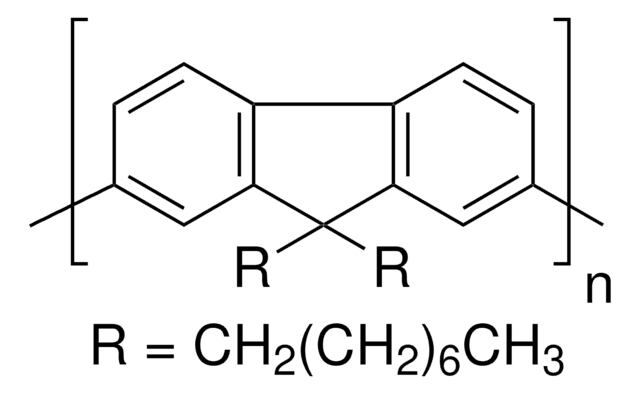

![Poly[(m-phenylenevinylene)-co-(2,5-dioctoxy-p-phenylenevinylene)] light-emitting polymer, predominantly trans](/deepweb/assets/sigmaaldrich/product/structures/249/040/9442b889-4fa0-4b4a-b424-cff0769a5ef2/640/9442b889-4fa0-4b4a-b424-cff0769a5ef2.png)
